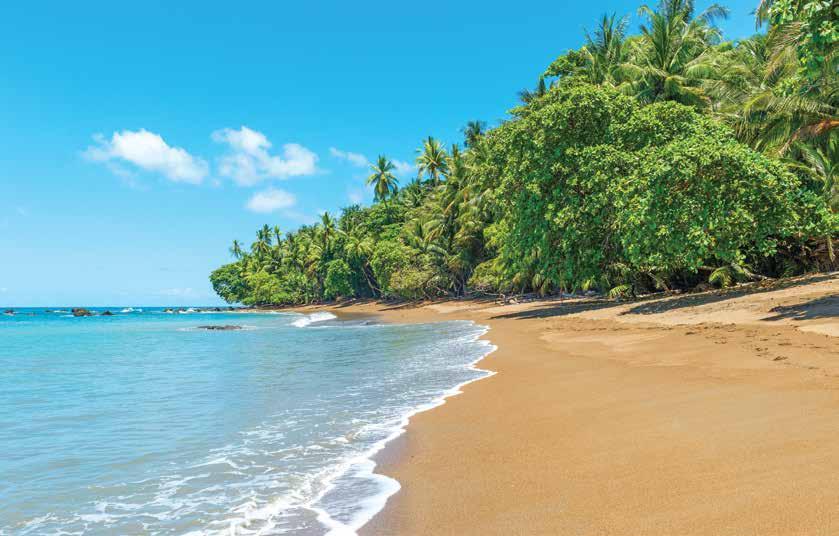
2 minute read
Eat Well in the Land of Pura Vida
By Roderick Eime
The tiny Central American Republic of Costa Rica leads the world in sustainable tourism.
Advertisement
Johnny Rodríguez grins broadly as he heaves on the huge lever, crushing a stalk of sugar cane in the rudimentary press. The rich juice runs down into a bucket while the mashed cane is set aside for compost and cattle feed.
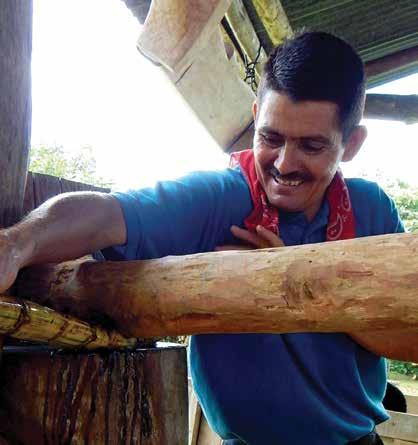
Johnny and the trapiche
Here at Playa Blanca on Costa Rica’s remote Osa Peninsula, the Quiroz-Rodríguez family has been cultivating and harvesting the sweet, bamboo-like product for some 50 years at Trapiche Don Carmen. Carmen, Johnny’s sprightly father-in-law, is still helping out while the children look on expectantly, knowing that a sweet treat awaits them. Johnny is proud as punch with his 100-year-old trapiche, a rough wooden mill set up to crush the long juicy stems while his horse, Ricki, hauls the heavy beam attached to the old grinder.
Deep in this thickly wooded valley, the 100 per cent organic product is boiled and purified into molasses plugs called tapa de dulce using their own wood-fired stove and handmade mahogany moulds. The process takes place in the yard of the little brick house while Noemí Quiroz, his wife, mixes a sweet concoction of molasses, nuts, coconut, and milk powder served to our group with a broad smile.
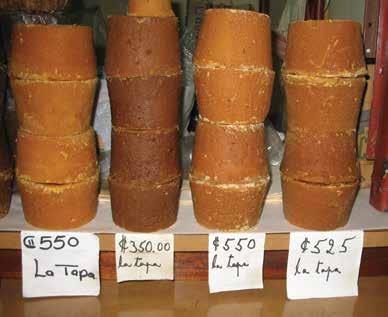
Tapas de dulce
In recent years, Costa Rica has become the poster child for eco-tourism. When people talk about green and sustainable travel, they often look to the little Central American nation as the template for soothing an ailing environment and creating, arguably, the happiest nation on Earth.

Osa Peninsula, Costa Rica
Costa Rica abolished its military in 1948, diverting funds to social and environmental programs. To the catch cry of Pura Vida (pure life), the country of around five million inhabitants (colloquially called ‘Ticos’) now punches way above its weight when it comes to such social and economic indexes such as happiness, carbon footprint, and civil liberties.
Later in the day, we are entertained by schoolchildren singing and dancing in traditional costume while a trio of mischievous wild macaws mocks the entire proceedings from their perch high in a massive fig tree. Our picnic complete, we head to the Finca Köbö cacao plantation where we discover far more than humble chocolate.
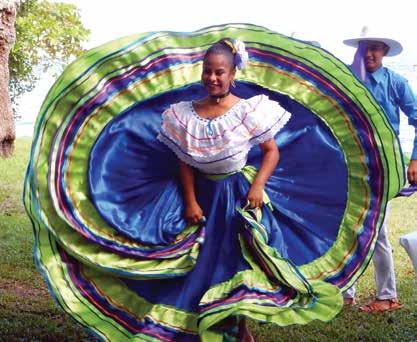
Traditional dancing
Juan-Luis, our guide, walks us through a tiny section of the farm where 85 different varieties of fruits, spices, herbs and vegetables thrive in the rich soil. The fully organic farm yields such exotic crops as custard apple, noni, cinnamon, turmeric, jackfruit, star apple, and several varieties of citrus and guava. “The noni is full of antioxidants and vitamin C,” he says, slicing the pungent fruit with his pocketknife, “the taste is not nearly as bad as the smell.”
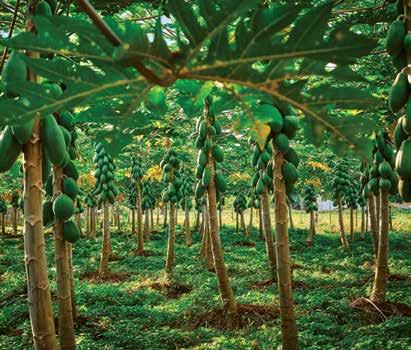
Pawpaw trees
Perhaps it is the much-lauded health benefits of the pungent fruit that is indicative of what we must endure to mend our broken world. A little discomfort and perseverance for a better life for all. Pura Vida!

